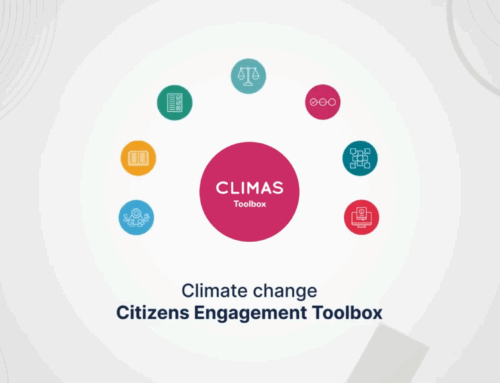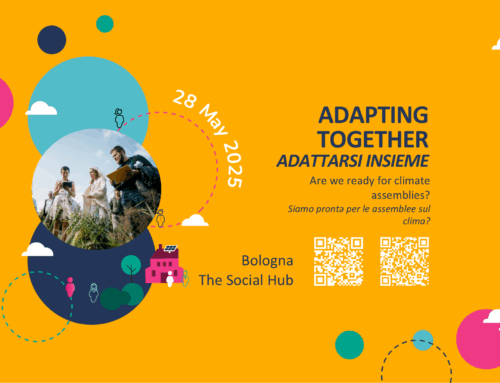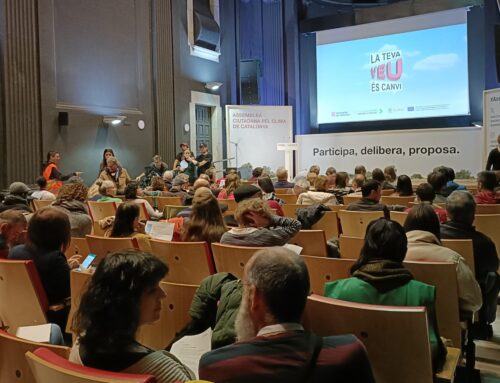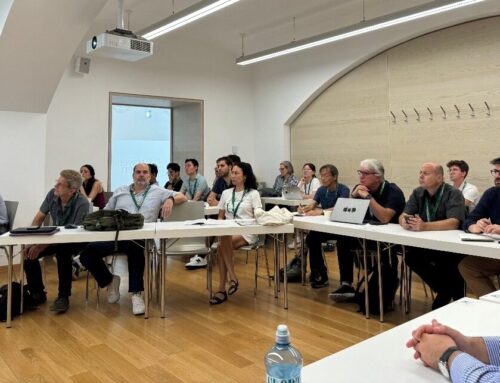The CLIMAS project represents a significant leap forward in integrating citizen science into climate assemblies with The Citizen Science Toolkit (currently under development). It is designed to be a comprehensive resource for organizations, communities, and participants involved in climate citizens’ assemblies. It serves dual purposes: it can be used as a stand-alone tool and as an integrated component of the CLIMAS Toolbox.
Citizen Science and Climate Assemblies: A Perfect Match
Climate assemblies follow a structured process with distinct phases such as learning, consultation, deliberation, and decision-making, involving various actors like governance bodies, experts, and citizens. Citizen science, on the other hand, engages citizens in the entire research process, from identifying concerns to monitoring outcomes. By integrating citizen science into climate assemblies, participants can gain deep expertise and actively contribute to breaking top-down structures, thereby fostering a more democratic and inclusive deliberative process.
Integrating citizen science into climate assemblies enhances the deliberative process by incorporating grassroots perspectives, ensuring diverse and comprehensive input. Utilizing living labs provides dynamic spaces for communities to collaboratively design, test, and implement innovative solutions, fostering practical, locally relevant outcomes. This participatory lifecycle approach combines the strengths of citizen science projects to build scientific knowledge, living labs for tool development, and the generation of informed recommendations for policymakers, promoting a holistic and inclusive pathway for addressing climate challenges.
Goals and Benefits of the Citizen Science Toolkit
The Citizen Science Toolkit aims to empower all actors in climate assemblies to enhance and deploy existing citizen science projects across different geographic contexts. It provides concrete value propositions co-created with end-users, illustrating the potential of citizen science in climate assemblies. Key benefits include:
- Enhanced Deliberative Democracy: By incorporating citizen-generated knowledge, the toolkit ensures a more robust and inclusive decision-making process.
- Practical Guidelines and Knowledge: The toolkit equips end-users with the necessary knowledge and guidelines to develop and implement citizen science actions effectively.
- Diverse Project Examples: It offers a collection of relevant citizen science projects related to climate issues, providing practical examples and best practices.
We are continuing looking for new projects that can fit to climate assemblies. If you have a project in mind contact us.
Co-Creation Process and Methodology
The development of the Citizen Science Toolkit is grounded in a co-creation process involving various stakeholders, including citizens, researchers, and practitioners. This process has been documented and structured meticulously, ensuring the toolkit reflects real-world needs and experiences. We conducte co-creation sessions in the Ebre Bioterritori Living Lab with citizens and in the European Citizen Science Association Conference (ECSA24). These sessions facilitated the exchange of ideas and the co-creation of value propositions for designing the prototype of the Citizen Science Cards – structured formats that detail suitable projects, activities, objectives, and expected outcomes of citizen science projects.
Next Steps: Refinement and Implementation
The Citizen Science Toolkit is currently under development and undergoing further testing. According to the CLIMAS project methodology, the final version of the Citizen Science Toolkit will be presented in November 2025, incorporating all feedback received during testing in both living labs and climate assemblies. Currently we are still planning the testing in Climate Assemblies of Riga and Edermünde. Our goal is to foster a collaborative environment where stakeholders can share knowledge, experiences, and resources to effectively implement citizen science in climate assemblies. Ultimately, we aim to deliver a robust methodological framework that guides the integration of citizen science into climate assemblies, ensuring a systematic and inclusive approach.
Follow CLIMAS on LinkedIn, Instagram and X, or subscribe to the newsletter to stay updated with the latest activities!
Author: Julian Vicens (Eurecat)




